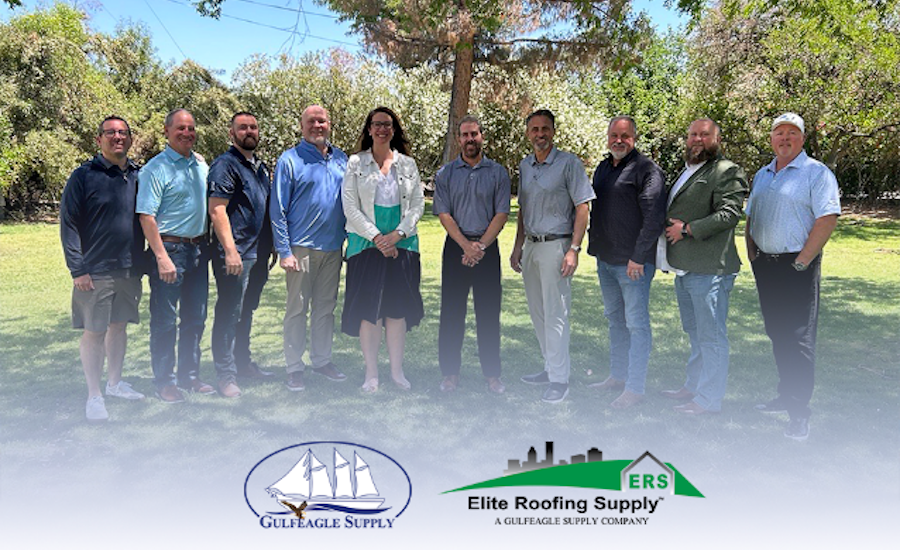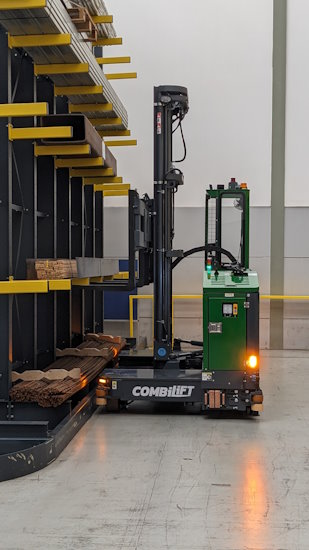Analysis: The Future of Roofing Distribution
Distributors are navigating a changing industry as acquisitions, technology and shifting demographics shape the landscape

Photo by Tiger Lily via Pexels.
In the competitive business landscape, stagnation is a sure-fire way to undermine profits and drive customers to better alternatives. To thrive, roofing distributors should proactively seek innovative ways to stay ahead of the competition and enhance their operations.
Roofing will always depend on distributors getting the right products to the right people at the right time. It will likely remain a relationship-based business regardless of innovations like artificial intelligence. However, technology and demographic changes are impacting how business is done; distributors and suppliers must evolve.
As someone who covers this industry and speaks with some of its major players and many proud independent distributors, this much is clear: the year 2024 felt a lot like a turning point.
Acquisitions
Perhaps no singular event shaped 2024 more than the acquisition of Texas-based SRS Distribution, whose approach to branding made it unique among the industry’s Big 3. While there were other significant moves, the SRS deal was not only the largest financially but arguably the most prescient.
The Home Depot shocked the industry when it announced and, in relatively short order, closed on an $18.25 billion deal to purchase SRS Distribution. Ted Decker, chairman, president, and CEO of The Home Depot, said SRS grants the retailer “the right to win with the specialty trade Pro customer” who needs specialized capabilities to complete projects. Not long after the close, during a Q3 earnings call, he said SRS was on track to deliver $6.4 billion in incremental sales.
“As you would expect, the immediate focus with SRS is supporting their growth both organically and through acquisitions. However, we are also seeing incremental cross-sale opportunities from our distinct product catalogs and competitive advantages,” Decker said.
Regarding cross-sale opportunities, the acquisition is opening up a new range of customers for SRS. Decker said the initial strategy they’re working on is making SRS’ catalog available to customers through the Pro Desk and outside sales resources.
In return, SRS brings its sales and credit know-how to the company. This type of win-win situation could inspire even more acquisition activity in the industry.
“We’re seeing much, much larger purchases, the type of purchase that you just wouldn’t get from putting it on a credit card at a Pro Desk at a Home Depot store,” Decker said.
In November, the Wall Street Journal was the first to break a story that a start-up company called QXO reportedly offered to acquire Beacon. Currently loaded with nothing but debt-free liquidity, QXO has a market cap of $6.3 billion. There was no figure reported, but with Beacon’s market cap just north of $7 billion, analysts speculated a deal could be brokered quickly.
QXO emerged last June, announcing it had raised an initial $3.5 billion in a private placement, followed by a second round in July, netting an additional $620 million. Its founder, Brad Jacobs, is a self-made billionaire with experience in logistics and a deep commitment to technology, particularly artificial intelligence.
“QXO’s strategy is to create a tech-forward leader in the building products distribution industry through accretive M&A and organic growth, including greenfield openings, with the goal of generating outsized stockholder value,” Jacobs said in a news release.
With $5 billion cash on hand and some significant C-suite hires, including a CFO and a chief AI officer, QXO seems poised to acquire Beacon or some other large company in the sector. Beacon had not commented when this article went to press, and QXO has not released any updates.
Truist Securities, which analyzes the construction materials distribution sector, describes the industry as having “notable pricing strength” and being largely consolidated. Aside from Beacon, ABC Supply, and SRS Distribution, there are few major players, but those other players are also making industry-shaking moves.

Gulfeagle Supply acquired Elite Roofing Supply in June 2024.
Gulfeagle Supply completed its acquisition of Elite Roofing Supply last June. The combined entity operates more than 140 branches nationwide. It’s an impressive footprint, but Kurt Schwahn, chief revenue and operations officer, emphasized it’s not about the number of branches but choosing the right companies that fit Gulfeagle’s service regions.
“At the end of the day, our goal is to grow for a variety of different reasons, right? It’s not just to hit a number on a board, right? We ... get asked all the time, ‘How many branches do you guys want to get?’ Well, that’s not our mentality,” said Schwahn. “Number one is we want to fit the needs of our customers.
“Our goal is to stay within our lane because that’s what we do well,” he added. “Our goal is to grow, but grow where it makes sense, not just hit a number.”
Diversification
The distribution industry may be consolidated in some areas, but it is experiencing growth in other ways. Suppliers are exploring new verticals and leaning into a more diverse workforce and clientele. With a national interest in energy independence, the renewable energy industry is more cost-effective in production.
This has reduced overall costs for homeowners and, often combined with available tax incentives, makes solar a particularly ripe opportunity for distributors — and contractors.
ABC Supply Co. is among those entering the industry with its Renewable Energy division, formed in early 2023. Eric Cieslak, business development manager for Renewable Energy, said in an interview last July that adding the vertical to ABC’s offerings was simply the next step in the company’s growth.
“ABC Supply is the largest wholesale distributor of roofing. I want us to also be known as the largest solar distributor, too,” he said. “Solar is fast becoming a major part of the U.S. infrastructure and roofing industry, and to [help] contractors ‘hybrid’ themselves so they can grow their businesses, it’s exciting.”
Cieslak’s cohort, Anthony Romero, handles renewable energy for ABC from the Rockies to the Mississippi River. He warned that contractors who aren’t going into solar — and perhaps, by extension, distributors — may be left in the dust.
“I think over the next five years, if you’re not doing [roofing and solar] you’re going to get left behind, because there’s going to be a company that could come and do both, and that’s who the homeowners are going to end up choosing,” he said.
SRS Distribution also entered the solar market, making it rst available in Western locations. Bill Eitenmiller, director of sales for SRS’ solar division, said that means learning about solar energy before they can educate contractors on how best to sell it.
“You can’t just take how solar has been sold in the past and then tell a roofer to go do it because it’s not the same language,” he said. “You can make solar easier ... so we’re facilitating some of those things [at SRS].”
Of course, all the verticals and sales techniques won’t help if distributors don’t have the personnel to facilitate it. Workforce shortages are still hampering the roofing industry, but those distributors who turn to the growing Latino community and bring women into leadership roles are ahead of the game.
Sean McDevitt, chief human resources officer at Beacon, told Roofing Supply Pro in early 2024 that one of the fastest-growing groups of owners and managers in the contractor industry is Latinos, so it makes sense to serve those customers in their native languages. McDevitt said 85% of Beacon’s job postings include speaking Spanish as a requirement or preference.
“If the fastest-growing part of the workforce that’s going to make you successful speaks Spanish, you better figure out how to hire Spanish speakers, how to be successful, how to build a culture that’s welcoming to them, how to create a way so that they can advance once they get here,” he said.
Sean McDevitt speaking as part of a panel at the 2024 International Roofing Expo
Latino distributors know this all too well. Finding a niche in serving Spanish-speaking communities and contractors has helped relatively young, independent suppliers like SYL Roofing Supply in Winter Garden, Fla., grow its business.
Sol Cerrada, president of SYL Roofing Supply, and her husband started their company in 2018 and are already looking to expand to a third location. They are also preparing to release an app to streamline customer interactions.
“I believe when we started, there was a need for a more diverse market, where the Latino community could communicate easily and get the service in their own language,” she said.
The Technology Game
The construction industry, including roofing, has the unfortunate distinction of being slow to adopt technology. It’s not for lack of interest: construction material distribution is relationship-based. This means outdated operating methods are sometimes needed to get the job done, thereby putting tech on the back burner.
Charles Michaud, vice president of Canada for Beacon, said his office still has fax machines for those customers who still use them. However, he has been in charge of shifting customers over to Beacon PRO+, the distributor’s eCommerce platform, which was recently introduced into the Canadian market.
“It’s just a matter of explaining why it’s beneficial to maybe some of those of the older generation, where we say, ‘Hey, look, we can help you streamline. We can save you some time and effort,’” he said.

Distributors could consider autonomous operations, like this automated Combilift forklift, to improve efficiencies.
Distributors are sending this message to customers nationwide to help them evolve. With apps and platforms, like myABCsupply, Beacon PRO+ and SRS’ Roof Hub, distributors provide contractors with easier material management while also addressing one of roofing technology’s biggest obstacles: integration.
Over the past few years, multiple distributors have linked up with software companies in the roofing space so contractors can use their favorite apps and programs alongside others.
HOVER, a 3D modeling software, has integrations with ABC Supply, and SRS’s new Roof Hub Estimator supports it along with other solutions. Beacon recently announced its partnership with Leap, a CRM tool, to integrate with its Beacon PRO+ platform, saying it helps remove tedious processes from daily workflows for customers.
“We’re committed to finding digital solutions that help our customers streamline and grow their businesses. Each additional digital integration moves us further toward achieving our Ambition 2025 goals,” Jamie Samide, Beacon’s vice president of marketing, wrote in a statement.
Independent distributors are getting in on the game as well. Gulfeagle Supply has an app that allows customers to place orders, apply for credit, and pay invoices 24/7. Even so, Schwahn, the CROO, circles back to this being a “relationship-oriented” business, believing technology should reflect that.
“Even looking at my competitors, they get on their quarterly calls and they tell how much more that their app usage is and how much volume they’re pushing through there, and that’s great,” Schwahn said. “From our perspective, it’s value-add, not a replacement. So our goal is to streamline and to gain efficiencies.”
Naturally, distribution itself can benefit from modern technology, with the most talked about advent in recent years being AI. Chris Arrington, senior credit officer and senior vice president at SRS, said he expects AI to play a major role in distributors’ operations, especially with labor in short supply. He compares the classic office desk — a corded phone and an IBM desktop — to a smartphone to explain how radically AI will impact business operations.
“[AI] is not going to be ‘you get to choose to have it,’ it’s going to be a need unless you can, in the next ve years, soak up all the labor from all the other competitors and from different industries,” he said, later adding, “We want to use AI to pinpoint stuff, not only to make the supply houses successful, but if we get that information early and arm it with our talent, and they’re trained for it? We can help make our customers more successful, too.
Looking for a reprint of this article?
From high-res PDFs to custom plaques, order your copy today!









